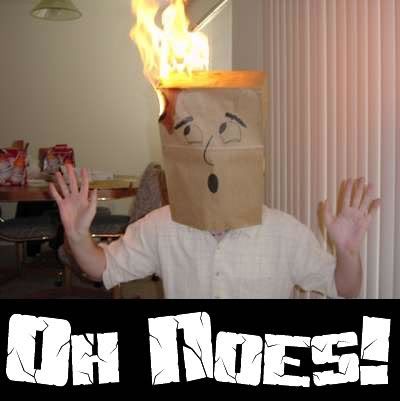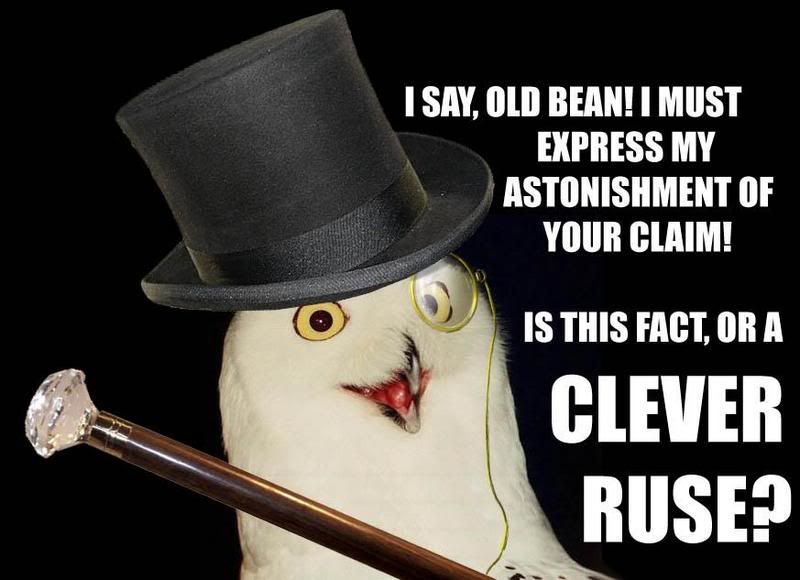
Posted on 05/14/2007 7:28:15 PM PDT by mylife
That sentence makes no sense. So I ran it through Bablefish from English to Russian, Russian to French, French to Finnish then Finnish back to English.
It's a little better, but I still don't get what you are trying to say?
Do you know the difference between patents, trademarks and copyrights?

LoL
You do remember that decision, right?
That's about the truth. Their operating systems may be terrible with regard to security, but when you change out that motherboard they are all over it. Too bad they don't have the same devotion to security as they seem to have for controlling what you do with their software after you buy it.

Is there another Micro-Soft about which I am unaware?
Fixed it for you.
Unix Expo
Remarks by Bill Gates
October 9, 1996
MONICA VILA: Good morning. Welcome to day two of Unix Expo Plus, the Internet plus Intranet show. Yesterday we reflected on the rapid change of technology and how the dividing lines between various aspects of IT have evolved and the dividing lines are becoming so blurred. I was reflecting this morning that featuring Microsoft at a Unix show is an event that probably wouldn't have occurred just a few years ago. Yet it's very relevant today, given Microsoft's position in enterprise computing.
It is rare we get an opportunity to listen first-hand to someone who's impacted our industry so profoundly for such a long time. Please join me in welcoming Mr. Bill Gates, president and CEO of Microsoft Corporation.
MR. GATES: Good morning. I hope I'm not out of place here. I'm curious, before I start out, how many people here have ever used a Windows-based computer? (Laughter.) All right, all of you.
Well, the reason I'm here at this Unix show is to talk about some of the very exciting developments taking place on both the hardware and software side that are allowing systems to work together more than ever before, and, in fact, allowing some of the benefits of the whole PC world spill over into the work station and Unix server world.
If we go way back in time, Microsoft was actually the first one to go to AT&T and beg to get a nice high-volume commercial license for Unix. And for many, many years we were the highest volume licensee, not only for our own Xenix products, but Siemens with theirs, Santa Cruz with theirs, and dozens and dozens of sub-licensees.
I have to admit, it was fairly difficult to work with AT&T back then. They simply didn't understand what they had. They didn't understand how to manage the asset, either in terms of promoting it properly or in terms of making sure that there wasn't fragmentation in how different implementations were put together. And so that vacuum in leadership created a bit of a dilemma for everybody who was involved in Unix.
Well, Microsoft stepped back and looked at that situation and said that the best thing for us might be to start from scratch: build a new system, focus on having a lot of the great things about Unix, a lot of the great things about Windows, and also being a file-sharing server that would have the same kind of performance that, up until that point, had been unique to Novell's Netware.
And through Windows NT, you can see it throughout the design. In a weak sense, it is a form of Unix. There are so many of the design decisions that have been influenced by that environment. And that's no accident. I mean, we knew that Unix operability would be very important and we knew that the largest body of programmers that we'd want to draw on in building Windows NT applications would certainly come from the Unix base.
Well, today Windows NT has achieved very high volume, and I think it's fair to say that it's both complementary and competitive to all the different flavors of Unix that are out there -- Solaris, HPUX, AIX. Excuse me if I've forgotten your favorite flavor as I go through those....
Microsoft has hardly practiced fair market process.
Well it now appears that the enemy is at the “gates” (pun intended!)
This is ancient stuff.
If you want to track the interesting part of the story, look for the actual list of patents being violated. M$ refuses to supply the exact ones.
Not looking up the decision at the moment I believe they used the word "patent", and not simply "design patent".
Good catch!
Their lunchtime lectures were always quite illuminating. Made the bizarre seem unbelievable.
So, they are bluffing eh?
With copyright, you must show the original work and prove it came before the alleged copy. Your description of a crime in post #24 is a description of proving copyright infringement--not patent violation.
Then you probably don't know how easy it has been to get patents for clearly non-patentable, "obvious to one skilled in the art", generic software features that are used in virtually every big piece of software.
For example, I know first hand that a VP for a chip company started the patent process for a binary search routine he "figured out" over a couple of months.
This is laughable coming from someone who got there start from ripping off CP/M and calling it DOS.
Who here remembers WordStar. LOL
I remember wordstar and peachtext and xtree L0L
Disclaimer: Opinions posted on Free Republic are those of the individual posters and do not necessarily represent the opinion of Free Republic or its management. All materials posted herein are protected by copyright law and the exemption for fair use of copyrighted works.